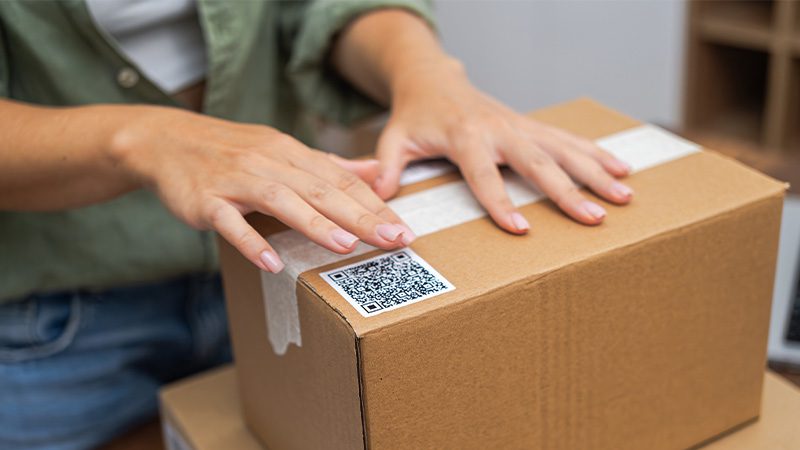UK retailers are dealing with rapid changes in 2026. Customer expectations are rising, delivery standards are stricter and running costs keep increasing. Retailers must find simple, reliable ways to improve efficiency without harming the customer experience. One of the most effective ways to do this is by improving packaging.
Packaging affects almost every part of the retail process. It influences the speed of packing, the cost of postage, the condition of delivered parcels and the customer’s first impression. With the right packaging strategy, retailers can reduce costs, improve workflow and build stronger customer loyalty.
This article explains how packaging has become a key part of business strategy in 2026 and why UK retailers should act now.
Why Packaging is No Longer Just an Operational Detail
Many businesses used to think of packaging as the final task before a parcel leaves the building. Today it is a critical factor in online retail success.
Good packaging supports:
- lower shipping costs
- stronger customer confidence
- fewer returns
- a faster packing routine
- better sustainability
- a cleaner brand image
Poor packaging does the opposite. It creates delays, increases returns, frustrates customers and weakens profit margins.
With competition across ecommerce at an all-time high, retailers must treat packaging as a strategic investment.
How Material Choices Affect Costs in 2026
Courier pricing and Royal Mail thresholds continue to change. Using packaging that is too heavy or too large can add unnecessary costs to every parcel. Over months of orders, the extra cost becomes significant.
This is why many UK businesses are switching to lighter and stronger materials. Lightweight packaging helps businesses stay in cheaper weight bands and reduces the amount of filler and tape needed.
A growing number of retailers now use lightweight mailing bags for UK parcels. These bags offer good protection without adding extra weight. They also help speed up the packing process because they are easy to seal and store.
For high volume sellers, this simple change can save thousands of pounds a year.
Why Grey Mailing Bags Are a Smart Choice for Many Retailers
Grey mailing bags have become one of the most popular packaging choices in the UK. They offer a strong balance of durability, privacy and professional appearance.
Sellers who handle clothing, accessories, books and soft goods often prefer strong grey mailing bags for ecommerce orders. These bags have a consistent film thickness and a strong self-seal strip that keeps items secure. They also reduce the risk of tears during handling and sorting.
Grey mailing bags help retailers send out parcels that look neat and arrive in good condition. This is important for customer satisfaction and reduces the risk of returns.
How Packaging Influences Customer Trust
Every parcel a customer receives is a reflection of the brand. Even if the product is high quality, poor packaging can spoil the experience.
Customers notice:
- whether the parcel is clean
- whether it is well presented
- whether it is securely sealed
- whether it protects the product
- whether it looks professional
Good packaging improves all of these areas. It makes customers feel valued and reassures them that the retailer takes care with every order.
Better packaging also reduces damage in transit. This means fewer complaints, fewer refunds and fewer negative reviews. Retailers benefit from better ratings and repeat business.
Why Simplifying Packaging Sizes Improves Efficiency
Many retailers stock too many packaging sizes. This causes confusion, slows down packing and increases the risk of using oversized materials.
By reducing packaging to a small, well-chosen set of sizes, retailers can:
- speed up packing
- keep workstations tidy
- reduce training time for new staff
- lower material costs
- avoid using packaging that is too large
A simple, consistent packaging system helps teams work faster and more confidently. It also reduces mistakes when dispatching orders.
The Impact of Packing Workflow on Daily Operations
Packing is one of the most repetitive tasks in a warehouse or fulfilment centre. Small improvements can make a large difference over time.
Good workflow design includes:
- materials that are easy to access
- a simple step-by-step process
- well-planned packing stations
- reliable packaging sizes
- strong self-seal strips
- a clear area for quality checks
These improvements reduce bottlenecks and keep orders flowing smoothly. This is especially important during busy seasons such as Christmas, Black Friday and summer sales.
Retailers who refine their packing workflow gain a real advantage in speed and consistency.
Why Working With a Reliable Supplier Matters
Packaging only works well when the supply is reliable. Stock shortages can slow down operations and delay dispatch. Inconsistent quality can also lead to problems during packing.
UK retailers prefer working with suppliers who offer:
- consistent sizing
- fast delivery
- steady stock
- strong, tested materials
- fair bulk pricing
Many businesses choose <a href=””>Mr Bags UK packaging supplies</a> because of reliable stock levels and consistent material quality. A dependable supplier is essential for retailers who dispatch daily and cannot risk delays.
Sustainability Matters to Customers
More customers are looking for businesses that use sustainable packaging. Lightweight bags help reduce the carbon footprint of shipping by using fewer materials and less overall transport weight.
Retailers that choose efficient materials and avoid oversized boxes align themselves with customer expectations for environmental responsibility.
This not only improves customer trust but also helps future-proof the business against upcoming regulations and sustainability standards.
Conclusion
Packaging is one of the simplest and most effective areas for retailers to improve in 2026. Better materials, more efficient workflows and reliable suppliers help retailers reduce waste, improve customer satisfaction and protect profit margins.
Retailers who refine their packaging approach now will benefit all year long. Stronger customer loyalty, fewer returns, reduced shipping costs and a more efficient operation make packaging a powerful competitive advantage in the UK retail market.





























